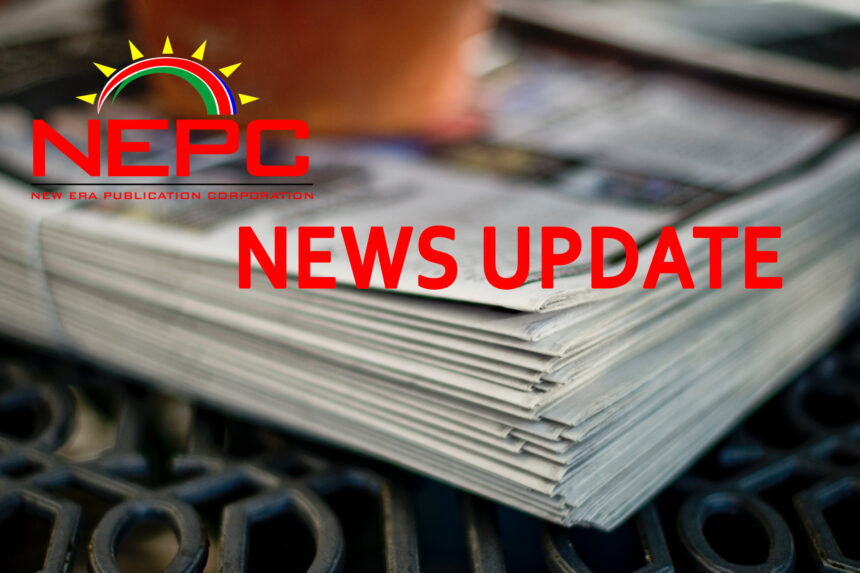A dismal rainy season is exacerbating a devastating drought for many areas across the country.
Although the end of January is already approaching, which would normally be characterised by good rains, little to no water inflow has been received into any of the three major dams that supplies the central area of the country.
The central area of the country is supplied with
water primarily from an integrated supply system consisting of three interconnected dams, namely the Omatako, Von Bach and Swakoppoort dams.
What makes matters worse is that central area residents have been consistently using more water than an introduced savings target. The increased consumption has been brought about by, amongst others, exceptionally high temperatures since
October 2023 and this has depleted available water resources faster than predicted.
The capital city of Windhoek, is home to a sizable amount of the country’s population, is thus quickly running low on water.
Namibia Water Corporation (NamWater) CEO Abraham Nehemia noted that the rain received in
most parts of the country has not been favourable as there has been very low inflow into all dams.
“As of Monday, 22 January 2024, the dam levels across the country were filled to 57.8% of their capacity, which is a significant drop compared to the same time last year which stood at 70.8%,” said the CEO in his New Year’s message.
Nehemia stated that these statistics paint a
worrying picture for Namibia as a whole.
According to a joint statement released last week by the City of Windhoek and NamWater, as of Monday 22 January 2024, the water level in the three dams that supplies the central area system was at 22.2% of
their combined full supply capacity compared to
39.9% at the same time in 2023.
In May last year, agriculture, water and land reform minister Calle Schlettwein warned of a potentially catastrophic water situation for the capital. Schlettwein said a lack of adequate rainfall during the last rainy season is most likely to result in Windhoek’s feeder dams running dry within the next few months.
“Very soon Windhoek will be under pressure, specifically in 12-months’ time, then the dams will be dry, and we will have to source water far away. We will get some water from Grootfontein in the Otjozondjupa region, and from your own boreholes here from the deep aquifers. So, you must keep your eyes on that because we cannot afford Windhoek to run dry,” the minister cautioned at the inauguration of the Namibia Water Corporation board in the capital at the time. -mndjavera@nepc.com.na



